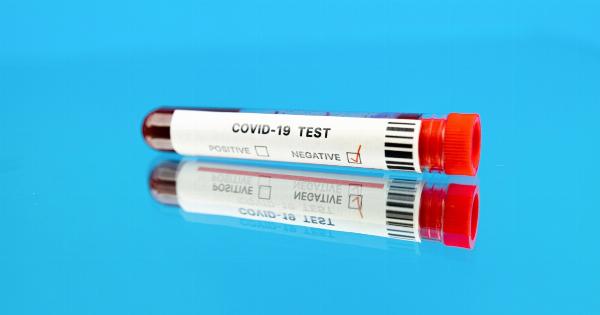Middle East Respiratory Syndrome (MERS) is a highly infectious viral respiratory illness that was first identified in Saudi Arabia in 2012.
Since then, MERS has spread to several other countries in the Middle East, with sporadic outbreaks reported in Korea, China, and the United States.
There is currently no specific treatment for MERS and no vaccine to prevent it.
Symptomatic treatment is the only option for those infected with the virus, and in severe cases, patients require hospitalization and supportive care such as oxygen therapy, mechanical ventilation, and renal replacement therapy.
However, a potential treatment for MERS has been discovered by a team of scientists in the United States. The researchers found that a drug called Remdesivir can inhibit the replication of the MERS virus in monkey and human cells in vitro.
What is Remdesivir?
Remdesivir is an experimental drug that was originally developed to treat Ebola virus disease. Although it has not been approved for any use in humans, it has shown promise against a variety of viruses, including coronaviruses like SARS and MERS.
Remdesivir works by targeting the RNA polymerase enzyme, which is essential for the replication of many viruses. By inhibiting this enzyme, Remdesivir can stop the virus from replicating and spreading throughout the body.
How was Remdesivir tested against MERS?
The researchers tested Remdesivir against the MERS-CoV virus in vitro using monkey and human cells. They found that the drug was able to block the replication of the virus in both cell types.
The researchers also tested Remdesivir in vivo using a mouse model of MERS-CoV infection. They found that treatment with the drug improved the survival of infected mice and reduced the amount of virus in their lungs.
What does this mean for the treatment of MERS?
The discovery of Remdesivir as a potential treatment for MERS is a significant development in the fight against this deadly virus.
While the drug has not yet been tested in humans with MERS, the results of these studies suggest that it could be an effective treatment for the illness.
However, more research is needed to determine the safety and efficacy of Remdesivir in humans with MERS.
Clinical trials will need to be conducted to assess the drug’s effectiveness at treating the illness and to determine the optimal dosage and duration of treatment.
What other treatments are being developed for MERS?
Remdesivir is not the only potential treatment being developed for MERS. Other drugs, such as interferons and ribavirin, have also been tested against the virus, but with limited success.
Researchers are also exploring the possibility of using convalescent plasma as a treatment for MERS. Convalescent plasma is obtained from individuals who have recovered from an infection and contains antibodies against the virus.
How can MERS be prevented?
The best way to prevent MERS is to avoid close contact with people who are infected with the virus.
This includes avoiding travel to areas where MERS is endemic and avoiding contact with camels and camel products, which have been identified as a possible source of the virus.
Good hygiene practices can also reduce the risk of infection.
This includes washing your hands frequently with soap and water, using alcohol-based hand sanitizer, covering your nose and mouth when you cough or sneeze, and avoiding touching your face with unwashed hands.
Conclusion
The discovery of Remdesivir as a potential treatment for MERS is a significant development that could save many lives in the future.
While more research is needed to determine the drug’s effectiveness and safety in humans, the initial results are promising and provide hope for those affected by this deadly virus.





























